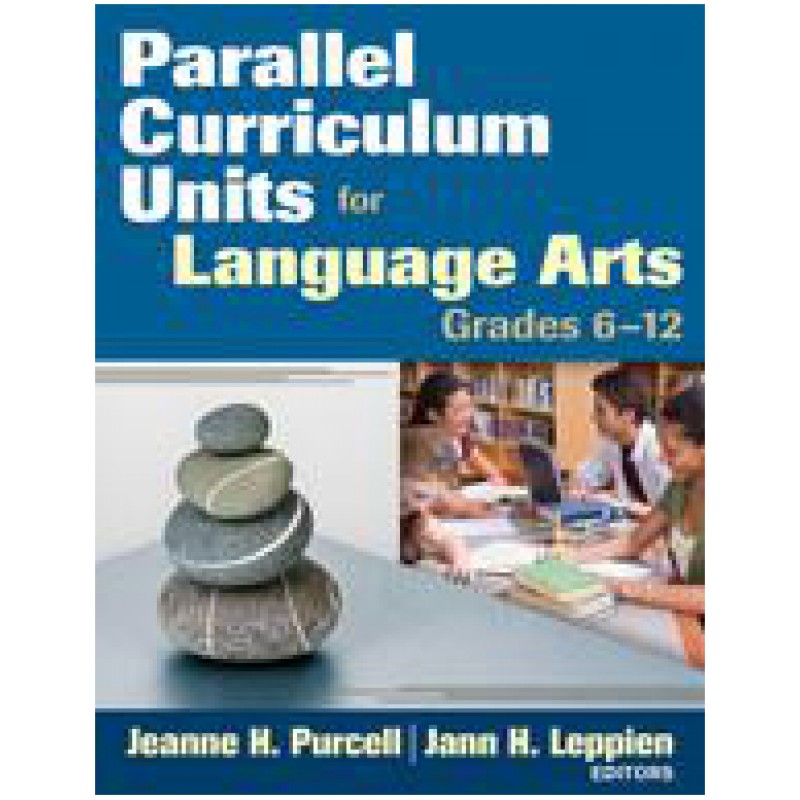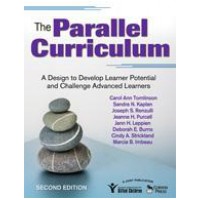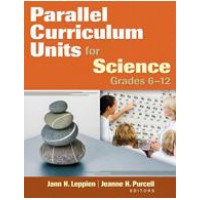Parallel Curriculum Units for Language Arts, Grades 6-12
| Author(s) | Jeanne H. Purcell, Jann H. Leppien |
| ISBN10 | 1412965381 |
| ISBN13 | 9781412965385 |
| Format | Paperback |
| Pages | 232 |
| Year Publish | 2009 August |
Synopsis
"The Parallel Curriculum Model (PCM) holds the power to help students and teachers 'see the whole' of what they are learning. We invite practitioners to read more about this model and join us on a professional journey that we believe will yield that joy and wisdom that comes from seeing the whole. To address the varying needs of teachers across the K–12 grade span—as well as different content areas—we decided to create a series of curriculum units, based on PCM, that could be used by practitioners. It is our hope that the lessons not only underscore important and discipline-specific content, but also illuminate the four parallels in unique and enduring ways."
—From the Introduction
Design exemplary language arts lessons based on the Parallel Curriculum Model!
Want to create rigorous learning opportunities for students in language arts based on a deeper understanding of pedagogy and curriculum design? As demonstrated in the best-selling book The Parallel Curriculum, the Parallel Curriculum Model (PCM) allows teachers to determine student performance levels and design intellectual challenges that help students develop expertise in specific subject areas.
Parallel Curriculum Units for Language Arts, Grades 6–12 provides sample language arts units written by practicing teachers to demonstrate what high-quality curriculum looks like within a PCM framework. Covering a variety of topics—including narrative voice, literary criticism, and writing original pieces—these field-tested units each contain:
- Teacher rationales explaining the unit design
- Connections to concepts, skills, and national or state standards
- Step-by-step directions for delivering the lessons and unit
- Modification strategies, assessments, and reproducibles
Use these examples to design your own units and deepen your understanding of how the PCM framework helps tailor curriculum to the abilities, interests, and learning preferences of each learner.
About The Authors:
Jeanne H. Purcell is the consultant to the Connecticut State Department of Education for gifted and talented education. She is also director of UConn Mentor Connection, a nationally recognized summer mentorship program for talented teenagers that is part of the NEAG Center for Talent Development at the University of Connecticut. Prior to her work at the State Department of Connecticut, she was an administrator for Rocky Hill Public Schools (CT); a program specialist with the National Research Center on the Gifted and Talented, where she worked collaboratively with other researchers on national issues related to high-achieving young people; an instructor of Teaching the Talented, a graduate-level program in gifted education; and a staff developer to school districts across the country and Canada. She has been an English teacher, community service coordinator, and teacher of the gifted, K-12, for 18 years in Connecticut school districts and has published many articles that have appeared in Educational Leadership, Gifted Child Quarterly, Roeper Review, Educational and Psychological Measurement, National Association of Secondary School Principals’ Bulletin, Our Children: The National PTA Magazine, Parenting for High Potential, and Journal for the Education of the Gifted. She is active in the National Association for Gifted Children (NAGC) and serves on the Awards Committee and the Curriculum Committee of NAGC, for which she is the co-chair for the annual Curriculum Awards Competition
Jann Leppien served as a gifted and talented coordinator in Montana prior to attending the University of Connecticut, where she earned her doctorate in gifted education and worked as a research assistant at the National Research Center for the Gifted and Talented. She has been a teacher for 24 years, spending 14 of those years working as a classroom teacher, enrichment specialist, and coordinator of the Schoolwide Enrichment Model in Montana. She is past president of the Montana Association for Gifted and Talented Education. Currently, she is an associate professor in the School of Education at the University of Great Falls in Montana. Leppien teaches graduate and undergraduate courses in gifted education, educational research, curriculum and assessment, creativity, and methods courses in math, science, and social studies. Her research interests include teacher collaboration, curriculum design, underachievement, and planning instruction for advanced learners. Leppien works as a consultant to teachers in the field of gifted education and as a national trainer for the Talents Unlimited Program. She is coauthor of The Multiple Menu Model: A Parallel Guide for Developing Differentiated Curriculum. She is active in the National Association for Gifted Children (NAGC), serving as a board member and newsletter editor of the Curriculum Division, and a board member of the Association for the Education of Gifted Underachieving Students.



